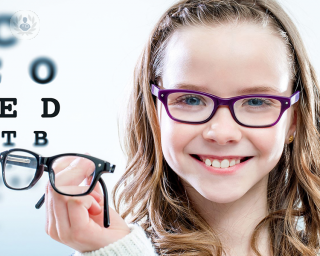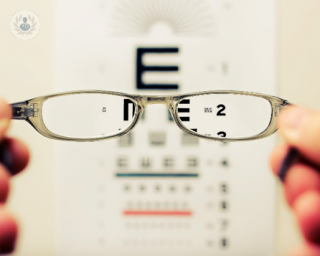Low vision
Mr Kieren Darcy - Ophthalmology
Created on: 11-13-2012
Updated on: 05-19-2023
Edited by: Aoife Maguire
What is low vision?
Low vision is suffered by people who have difficulties in their daily lives because of alterations in vision that can be limiting. They usually have a visual acuity of 0.3 or less or a loss of visual field of less than 20 degrees. Hence, low vision is when you have lost a certain amount of your vision, making daily tasks difficult.
Low vision may be characterised by a loss of visual acuity or visual field, loss of contrast sensitivity, abnormalities in colour vision and night vision and increased sensitivity to light.
It is a problem whose incidence has grown a lot in recent decades, especially with the increase in life expectancy.

Prognosis
After being diagnosed with low vision, a good quality of life can be achieved with treatments that aim to improve vision.
Low vision symptoms
The main symptoms of low vision are:
- Blurred vision
- Reading with difficulty
- Inability to write
- Difficulty watching TV or reading signs from afar
- Problems in driving
- Difficulty for recognising faces
Low vision medical tests
To diagnose low vision, different tests are performed to determine the following:
- Visual acuity at a distance and up close
- Refractive error
- Contrast sensitivity
- Reading speed
- Visual fields
- Colour vision
- Sensitivity to glare
What causes low vision?
Low vision can be caused by a number of factors, including the following:
- Diabetes
- Glaucoma
- Congenital defects
- Diabetic retinopathy
- Cataracts
- Macular degeneration
- Inherited diseases
- Ageing
Can low vision be prevented?
There is no specific prevention for low vision, but it is possible to take care of your eyes, by wearing sunglasses and by having regular eye appointments.
Treatments for low vision
Low vision cannot be corrected with glasses, contact lenses or surgery. The aim is to improve the vision that has been diminished, by learning new ways of reading and writing and performing different tasks.
Which specialist treats you?
The specialist who treats low vision is an ophthalmologist.












